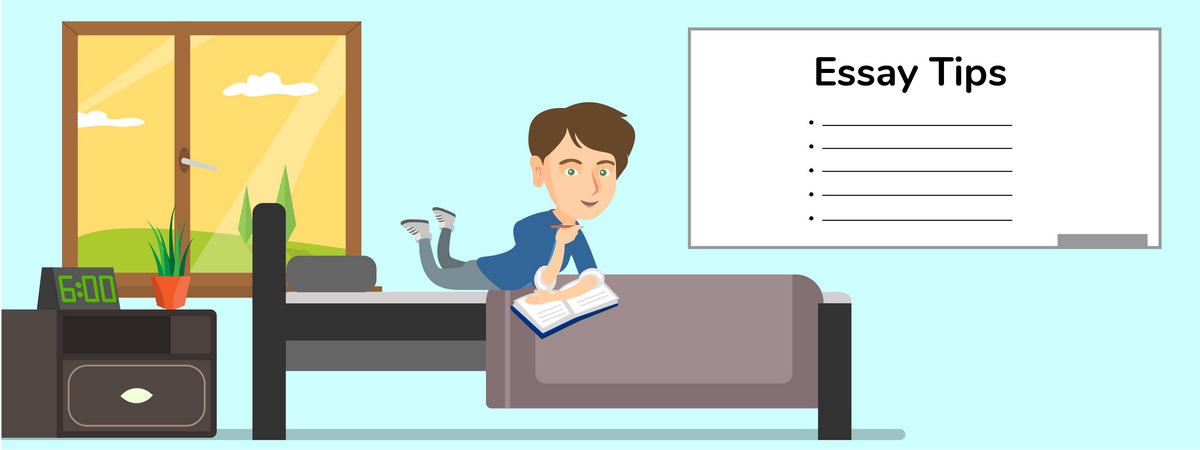Personal Statement Format And Tips
Colleges need to get to know you when deciding whether or not to admit you. They need an idea of who you are outside of your test scores and transcripts. That’s where the Personal Statement comes in.
Here are 3 insights into the Personal Statement format, along with 7 tips on how to write an effective one that accurately reflects you.
Before applying to college, take a minute to check out our various SAT prep and ACT prep classes today.
What Is A Personal Statement?
Here’s the 411 on what this essay is about.
The Personal Statement essay is used by college admission committees to gain insight into who you are as a person, and why you want to attend their school. It’s important to note that whether you are applying for undergraduate or graduate schools, a personal statement will be required.
[leadmagnet_five]
What Colleges Are Looking For From You
Here are the three major insights that colleges look for in your Personal Statement essay, which will affect the format.
Personality Insight – The first variable admissions boards are studying is your personality.
They want to have an idea of who you are as a person. Are you curious? Warm-hearted? Ambitious? Always contributing to your community? They want to know what traits define who you are.
A high school transcript communicates how much information you’ve retained, but it doesn’t share what makes you unique. That’s why the Personal Statement is used to explore who you are outside of test scores and transcripts. It allows the board to examine how you can contribute to both your college class and the campus community while attending school.
Writing Proficiency – Another purpose the essay serves is checking out your writing skills. The personal statement acts as a writing sample that boards use to assess whether or not you’re at the level of handling college-level assignments. That’s why it’s important to use this essay as a showcase.
Don’t worry though about having perfect skill; the biggest thing that admissions officials want to see is that you can clearly express your thoughts and ideas. However, work very hard to make sure the essay doesn’t contain any grammatical errors or misspelled words.
Why You’re Applying – Colleges want to know why you want to attend their school specifically. They’re not interested in flattery. They want to genuinely gauge your enthusiasm for their institution. Why? Because they have only so many spots available for applicants per year.
They do not want to waste one of them on a kid who doesn’t really care about being there. They would rather know if you have other options in mind than offer you a spot that you reject. In that case, they have to then search for someone else to fill that slot. If you’re applying to a school you really want to attend, then make that absolutely clear to them.
7 Tips To Write An Effective Personal Statement Essay
Use these 7 tips to write a Personal Statement that accurately reflects your experience and improves your admission chances.
Start Preparing Early – No one really likes writing essays, but don’t avoid this one until the last second. You will want to get the rough draft out of the way as early as possible. Why? So you can spend as much time as you can editing, revising and tweaking it. Good editing takes a lot of time to do right. You will want to try different variations, try out different information, and work on the length.
One tip that works for many people is writing an initial draft and then purposefully ignoring it for a couple of days. When you come back to it, you’ll have fresh eyes to edit it more easily. As far as timetables go, shoot for starting your personal statement at least 1-2 months before the admission deadline. Use the time to your full advantage.
Write About What Excites You – When thinking about what to include, don’t write about things that don’t genuinely engage you. A common mistake students make is writing what they think officials want to hear. Don’t fall into that trap. There’s no right or wrong answer when it comes to personal statements – there are only the answers that matter the most to you.
The best things to write about are events or topics that have demonstrated a real, measurable effect on your life and perspective. Don’t showboat though, instead be honest about how you were engaged, what you learned, and how you have changed moving forward. Admissions boards want to learn about you, not have you share what you think they’ll like. They’ll know it when they read it.
Be Specific And Focus – You have a limited word count. Make every single one count. Don’t think of the personal statement as a work resume; it’s better to focus your topics down to one or two than briefly expand on a plethora of unrelated information. Narrow your focus and then drill down into the details.
Remember that you are trying to draw your reader into your world and educate them as to why this information is important. Don’t sweat having to include every single detail though; only include the most important and descriptive ones to explain your point. If you do that, you’ll stay within the provided word count and get your story across sufficiently.
Share Your Voice – Make your writing an extension of how you speak. The personal statement isn’t designed to be a term paper. You don’t have to be ridiculously formal. What’s more important is sounding like yourself. Use simple but clear language that explains your points succinctly or evokes emotion. Don’t try to sound fancy by using any vocabulary you don’t understand.
Avoid slang but don’t worry about writing in the first person or not; it’s ok. Also, every event or circumstance doesn’t have to be positive. It’s ok to include events that perhaps ended negatively but that you still learned from afterward. If you can read your personal statement out loud and it sounds like how you would share a story with a friend, then you’re on the right track.
[leadmagnet_two]
Grab The Reader’s Attention – Make every word count by grabbing attention in the beginning. Admissions officials will read literally thousands of essays every year. You need to stand out from the crowd to get accepted. Whatever topic you are writing about, grab their attention and don’t let it go for a minute. Include as much detail without overkill from the start.
Paint a picture of the circumstances and share it like a story. This format will engage the reader’s imagination and pull them into wanting to learn more. Writing a brief but descriptive story as your introduction will hook the reader in. Once that’s accomplished, continue laying out the rest of your essay but make sure to keep it interesting enough to not lose their attention.
Read It Out Loud – Before submitting your personal statement, reread it for potential errors. As mentioned earlier, make sure your essay is devoid of grammatical errors and misspellings. Anything that remains will be picked up and ruin your chances. Besides spell checking, read what you’ve written out loud. Reading work out loud lets you hear possible grammar or sentence mistakes that your eyes and brain can otherwise ignore.
Also, don’t be afraid to have others read it too. Ask parents or teachers to read your draft and recite back what they learned from it. Did you clearly communicate the points you intended? Did anything come across as confusing? Is there more you should share? Another pair of eyes can answer those questions for you.
Ruthlessly Edit – Don’t be precious about your writing. Your first draft will not be a masterpiece. They are never perfect. Instead, they are the blueprint for what comes next from editing. Editing doesn’t mean a quick spell check. Editing means analyzing the entire structure and content and questioning whether it achieves its goals.
Does it share a clear, engaging story? Does it have a logical flow? Are there any jumps in logic or topic that aren’t justified with further information? Are you keeping things vague or including enough detail? Can you summarize the point by the very end? These are questions you’ll need to ask yourself.
If you can’t answer each one sufficiently, then it’s time to rewrite and cut what isn’t working. You’ll likely have to rewrite a lot of material and cut huge sections out. Don’t feel bad. This is how the process works and gets you to the final, perfected essay. Trust the process and engage with it honestly.
How Prep Expert Can Help
Besides providing standardized test prep, we also offer comprehensive admissions consulting services.
We know that working on a Personal Statement sounds somewhat daunting, but it doesn’t have to be. The entire college application process has many steps that require meticulous attention to detail. Missing anything can hurt your chances.
Thankfully, our Admissions Director is available to help both students and parents ace the process. For more information, take a moment to check out our Admissions Consulting page for services and updates.
For more test strategy, college admissions, and scholarship application tips sign up for our FREE class happening right now!
Written by Dr. Shaan Patel MD MBA
Prep Expert Founder & CEO
Shark Tank Winner, Perfect SAT Scorer, Dermatologist, & #1 Bestselling AuthorMore from Dr. Shaan Patel MD MBA

ACT Test Dates in 2025
If you’re planning on taking the ACT in 2025, you have several dates to choose from. This year, thanks to…
How MIT’s New Free Tuition Policy Is Leading a New Era of American Meritocracy in Higher Education
Massachusetts Institute of Technology (MIT) recently announced an inspiring policy: the school will now provide free college tuition for families…

How To Get Into Georgetown
Hoya saxa! Georgetown University is one of the oldest and most prestigious universities in the United States. The first federally…



